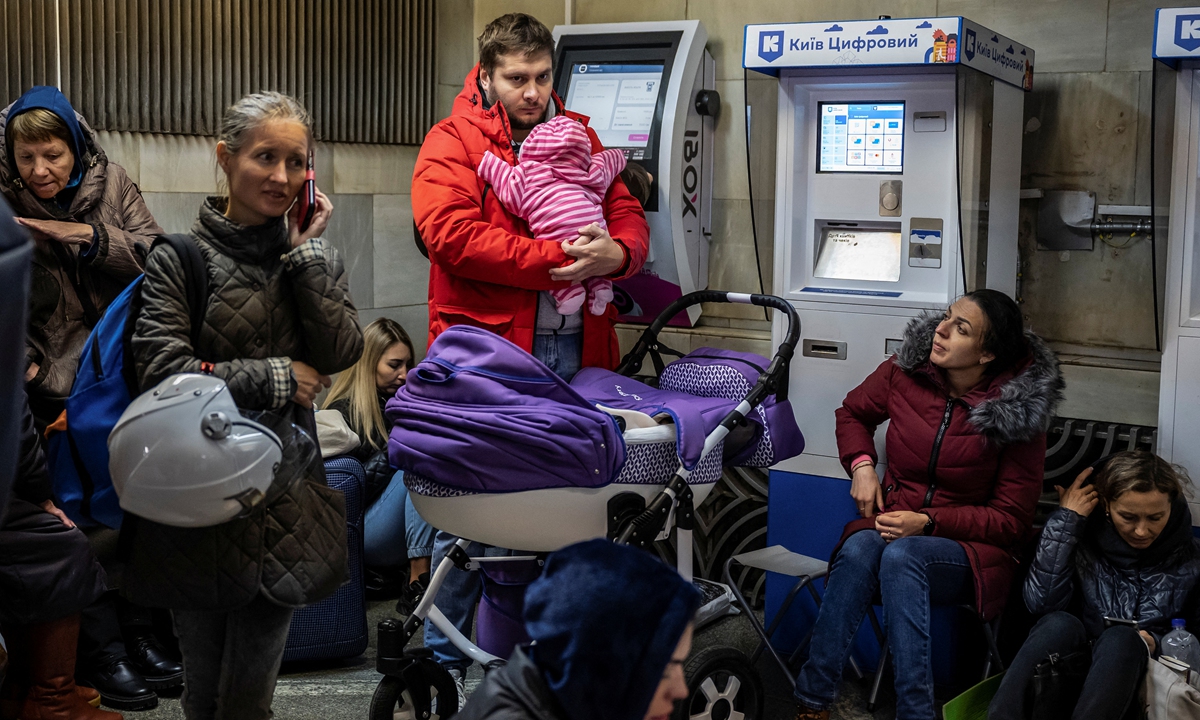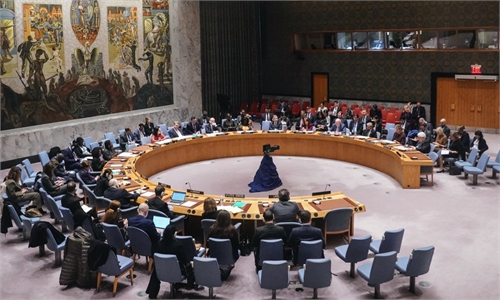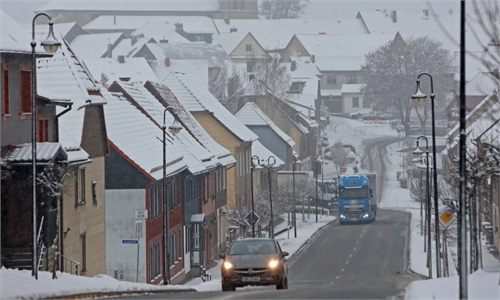Winter stalemate of Russia-Ukraine conflict ‘not sign of peace’ as neither side will compromise

People take shelter inside a subway station from missile attacks in Kiev, Ukraine on October 11, 2022 when sirens sound across Ukrainian cities as Russian strikes continue. Photo: IC
In the 10th month of the Russia-Ukraine conflict when military operations are scaling down in the freezing winter, observers see a slim chance of negotiations for peace in the near future as neither side is ready to compromise to figure out a common ground for talks.
Henry Kissinger, the former US Secretary of State, called for building a structure "to achieve a negotiated peace" when the crisis could be at a tipping point after winter put a pause on large-scale military operations in an article published in British magazine the Spectator on Saturday.
Kissinger compared the current situation of the Russia-Ukraine conflict to that in August of 1916 during the First World War - the main combatants were exhausted after two years of fighting and millions of casualties and the main parties began to consider options for ending this massacre. Since no possible compromise could justify the sacrifices already made, and since neither side wanted to appear weak, the leaders were in no rush to begin a formal peace process.
"The quest for peace and order has two components that are sometimes treated as contradictory: the pursuit of elements of security and the requirement for acts of reconciliation," Kissinger wrote.
Some Chinese observers agreed with the similarities Kissinger mentioned, as both Russia and NATO in the current conflict are depleted yet neither is willing to make the compromise first. The stalemate is about to prolong and risks of escalation remain, they warned.
Zhang Hong, an associate research fellow with the Institute of Russian, Eastern European and Central Asian Studies at the Chinese Academy of Social Sciences, told the Global Times that peace talks are unlikely in winter considering recent additional Western sanctions on Russia and aid to Ukraine, as well as Russia's new round of strikes against Ukraine.
Russian President Vladimir Putin met his military chiefs on Friday, the same day Russia launched another wave of missiles against Ukraine's infrastructure, the BBC reported.
Ukraine has accused Russia of planning a wide-ranging ground offensive for early in the New Year, despite recent Russian military setbacks, according to another BBC report.
Wu Xinbo, dean of the Institute of International Studies at Fudan University, said at the Global Times Annual Conference on Saturday that Ukraine does not want to halt its counteroffensive acts while Russia hopes to adjust and regain the battlefield advantage. The US eyes consolidating its interests yielded through hyping the conflicts, including to comprehensively weaken Russia, placate Ukraine and tie Europe to US policies.
The parties involved have the will to continue military moves rather than push forward peace talks, Wu said.
Zhang predicted the stalemate to continue in the following weeks and further Western military aid to Ukraine could prompt higher-level Russian strikes, leading to an escalation of the situation. "So far, there is no clear direction of how the conflict could come to an end."
News broke on Thursday that the Biden administration is finalizing plans to send the Patriot missile defense system to Ukraine, CNN reported, citing two US officials and a senior administration official. It said the plan was expected to be approved by the defense chief and the president.
Russia's Foreign Ministry warned Thursday that if the US delivers sophisticated air defense systems to Ukraine, those systems and any crews that accompany them would be a "legitimate target" for the Russian military.
There might be "signs of peace talks emerging" every so often in the future but Chinese analysts are not optimistic of any substantial progress, since the stances of the parties are too far apart to figure out common ground for talks and neither side wants to compromise.
Wu pointed to a possible scenario that the parties involved "pose for peace talks" while maintaining attacks. When the combatants are too exhausted to continue military moves, they could realize a de facto truce. But such truce means no peace agreement in political terms.
Observers warned the conflict has increasingly become a key factor reshaping regional and global equilibrium. The longer it lasts, the greater danger it poses to the world.



